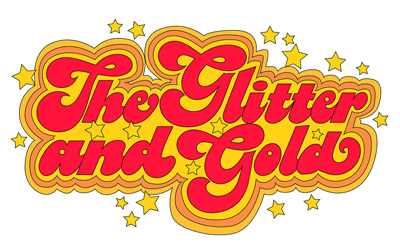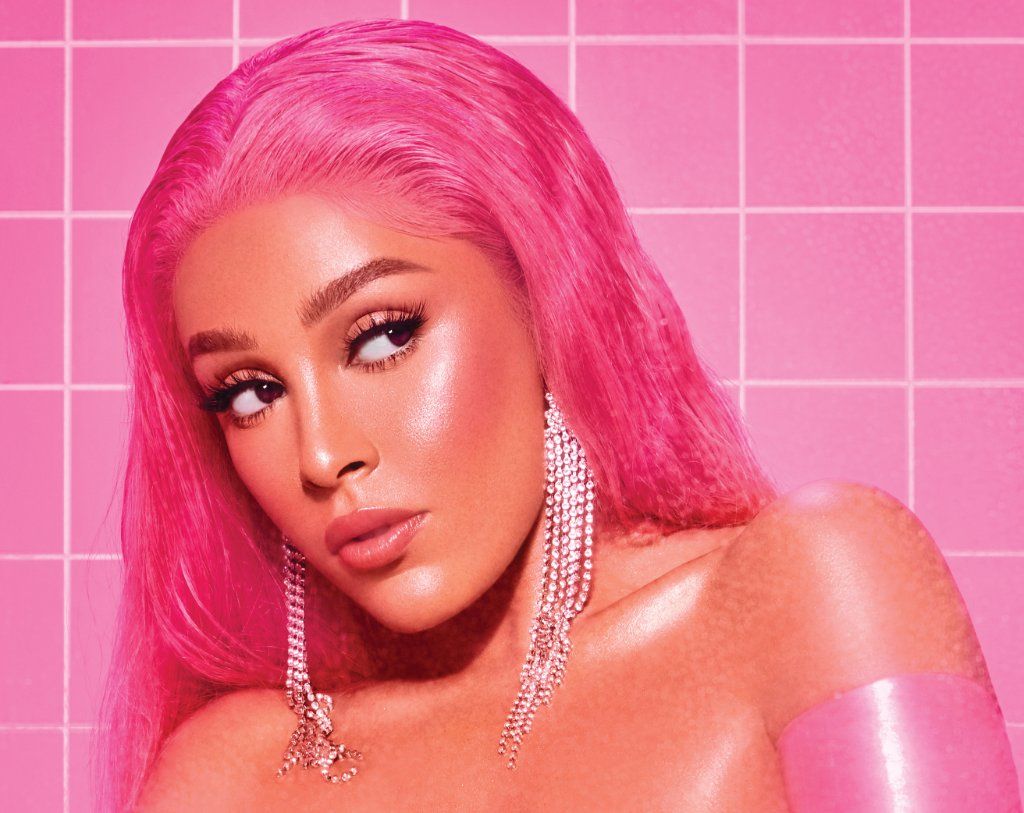The chameleon is a fascinating creature. Not only does it change its colour to blend into its environment and escape danger, but it also changes colour to entrance its mate. Bruno Mars was pop’s perfect chameleon. A versatile vocalist, he could adapt to suit any occasion. An agile musical actor, he could sing ballads, Motown and smooth R&B. Rock, soul, reggae too. He could even call down the funk like James Brown. You name it, Mars could do it. A perfect chameleon.

The Origins of Bruno Mars
What made him such an effective musical actor? It was a role Mars had been playing all his life. Peter Gene Hernandez was born in Waikiki, Hawaii. in 1985. At age two he joined his family’s professional covers band. By 4, he had made a name for himself in the as an Elvis impersonator. (He would later shift his focus to Micheal Jackson.) In short, he was raised to entertain.
His childhood, however, was far from charmed. Mars’ teenage years were difficult. His family fell on hard times. Money was scarce and there were periods where he was homeless.
After finishing high school he relocated to LA. Here he joined hit songwriting and production team The Smeezingtons. Mars and associates quickly made a name for themselves writing hit songs for others. As Mars did he continued to fine-tune his musical versatility. If an artist required a soccer anthem they received it. If Flo Rida‘s and Ke$ha needed a pop-rap chart Mars and associates could help with that too. When Gnarls Barkley‘s CeeLo Green was looking for a throwback to classic soul Mars and his friends assisted him in creating ‘F**k You‘.
`Bruno Mars Steps Centre Stage
Mars, however, was not content. He had more than enough of his own talent to be a star. The opportunity to break himself as pop act came with 2009 B.O.B. collaboration ‘Nothin’ On You’. Helped in no small part to Mars’ stellar vocal performance the song became to Number One single in the US and across the globe. After a second chart-topping single with Travie McCoy Mars made his solo debut with ‘Just the Way You Are‘, the lead single from his debut album Doo-Wops & Hooligans.

Writing ‘Grenade’
‘Grenade‘ was Doo-Wops & Hooligans’ second single. Ever the chameleon Mars once again adapted. This time he delivered a slight twist on his now signature style.
‘Grenade’ was darker. “Take,” Mars sings in the opening verse, “take, take it all, but you never give.” As the song progresses its lyrics make clear the object of Mars’ affection doesn’t feel the same way. “I would die for you baby,” he sulks during the song’s chorus, “but you won’t do the same.”
The song was inspired by an unreleased demo recording Mars heard while in the company with hit songwriter Benny Blanco. “I said to Benny,” Mars would later recount, “I can relate to that so much, I want to take that and make it my own. He was in contact with the dude, and I started writing my version, basically. It’s a heartbreaking, heartbreak song, and I think everyone can relate to that.”
Mars and The Smeezingtons fine-tuned ‘Grenade’ over a period of several months. An early version took on a more surf-pop vibration. They also cycled through several versions for the over the top devotional acts which comprise the song’s chorus. Catching a grenade, impaling a hand on a knife, leaping in front of a train and taking a bullet to the brain made the final cut. Jumping out of a plane and being eaten by a shark, did not.
‘Grenade’ Kicks Bruno Mars’ Career Into Overdrive
‘Grenade’ was released on September 28, 2010. Mars’ exceptional vocals and the song’s theme of unrequited romance quickly captured the public’s imagination. (Onesided romances were in vogue at the time, the year ‘Grenade’ was written also saw the release of a romantic blockbuster titled He’s Just Not That Into You.) In December 2010, the song shot to the top of the US singles chart.
It was Mars fourth single simultaneously in the US Top 10. It joined B.o.B duet ‘Nothin’ on You’, Travie McCoy collaboration ‘Billionaire’ and Mars’ chart-topping debut single ‘Just the Way You Are’. This made Bruno Mars the first solo male artist since Rick Astley to have his first four singles crack the Top 10. ‘Grenade ‘ itself climbed to Number One on January 16, 2011.

How Often Has Bruno Mars Performed ‘Grenade’ Live?
When the Beatles told fans their favourite candy was jelly beans they were pelted mercilessly with them live. With the success of ‘Grenade’ Mars found himself in a similar predicament. He and his live band were often pelted by plastic toy grenades.
“At first it was cute,” Mars told the Daily Star, “now it’s beginning to spook my band out… It’s dangerous and scares the s**t out of me.” Nonetheless, ‘Grenade’ has been a regular part of Mars’show. Since it’s release Bruno has performed the song 277 times live. (‘Just the Way You Are’ takes the top spot having been performed 381 times.)
Love as Addiction
Love is addictive. In fact, the chemical changes romantic love causes in the brain have been proven by science to be as powerful an effect on the brain as heroin or cocaine. All involve an elevated activity of the reward hormone dopamine in the brain. Being in love alters our perception of reality. Likewise, love’s withdrawals can be equally as devastating. Why was ‘Grenade’ so relatable? The song’s feeling of rejection was universal. Not everyone has flirted with hard drugs though most of us are, at some point, burned by love.

Was Bruno Mars a Little Too Eager to Please?
Mars had addictions of his own. There was more to his lifestyle than his clean-cut image of entertainer suggested. The same month as the release of ‘Grenade’ Mars was arrested for cocaine possession in Las Vegas. He later expressed he regretted the risk it had possed for the success he had worked a lifetime to achieve.
“You’ve slaved away for years and years and years,” he told E! News in 2013. “You’ve prepped your whole life. It’s all you know how to do. You’re a kid experiencing life in f**king Sin City, and that was the lesson: It can all be taken away.”
The case can be made however that Mars’ greatest love was fame. Behind the charm of his 24-carat public persona, he, like many other entertainers, was hungry for praise. Mars wanted to see his reflection in his audience applause. He wanted to be adored. Mars would give anything he had to his audience if it meant it would make him a star.
How to Tell a Flatterer From a Friend
And he was not above flattering his audience to make it happen. At our core, we are all self-interested beings. And it is on this love of self on which the terminal flatterer thrives. The flatterer attracts by the pleasure they give. They attach themselves to their victim through the honeyed pleasure of their praise. Like the chameleon, they too change with their surroundings. They deceive and conceal their true nature by imitation. Flatterers cushion us against reality.
Those who surround themselves with flatters never see their merits and limitations. Beholden to the flatterer they never know who they really are. A true friend speaks their mind. The flatterer works upon our emotional and unreasoning instincts. They speak only to please, seducing by using sensuality as their bait.
“Just as spurious and mock gold only imitates the brightness and glitter of real gold,” the philosopher Plutarch noted, “so the flatterer seems to imitate the pleasantness and agreeableness of the real friend, and to exhibit himself ever merry and bright, contradicting and opposing nothing… he praises those he fancies immoderately, overdoing it indeed with his show of surprise and excessive admiration.”
Let’s face it, the chameleonic Mars has an element of the flatterer within him. Mars had no message or grand vision. He didn’t want to change the world just improve his place in it. With a net worth of $175 million, few could argue he did not succeed.

Trickster or Survivor?
In some Native American cultures, chameleons are viewed as symbols of survival. In other myths, the chameleon takes on the role of the trickster. If Mars was a chameleon at the outset of his career a fan must ask, is this such a bad thing? On one hand, he used his talents to overcome childhood poverty and racial stereotyping in the music industry to become a star. He bought pleasure to millions of fans, meeting his audience’s needs no matter what they may have been. On the other hand, was he little more than a flatter, a manipulative master illusionist?
“Know that who and what you are can be altered by your actions,” website Spirit Animals writes of the chameleon. “Sometimes fake it till you make it” is the way to go… The world and people around you will only perceive what you put out for others to see and believe.”
Mars could fake it and he made it. In 2010 and 2011, Bruno Mars dominated pop. What made him such a success? His experience as an entertainment and later behind the scenes songwriter had primed him to deliver the kind of music the public wanted. He was eager to please and drew on the comfortingly nostalgic sound of pop’s past.
Beginning 2011 with four singles in the Top 10, Mars had arrived. Fame and fortune were his. But at what cost? Did we ever get anything authentically his own or was did he use his spectacular talent to simply deliver what he thought he wanted his audience to hear?

The Road Ahead for Bruno Mars
Like chameleon itself, Mars has continued to adapt and grow. The long-awaited follow up to 2016’s 24K Magic will likely be no exception. Mars is, after all, adaptable. He knows the needs of others and can respond to the shifting attention of the pop audience. He has spent a large part of his life impersonating others. His true character, who he is outside of the glossy world of fame he now so skillfully inhabits, remains mysterious.

‘Grenade’ Chart Positions
US/Billboard 100: #1 (36 weeks on chart)
Australia/ARIA: #1 (33 weeks on chart)
UK/Official Charts: #1 (38 Weeks on chart)
One-sided narrative
A grenade!? Really?
She's just not that into you?










He overcame adversity
Spectacular vocal talent
Love hurts